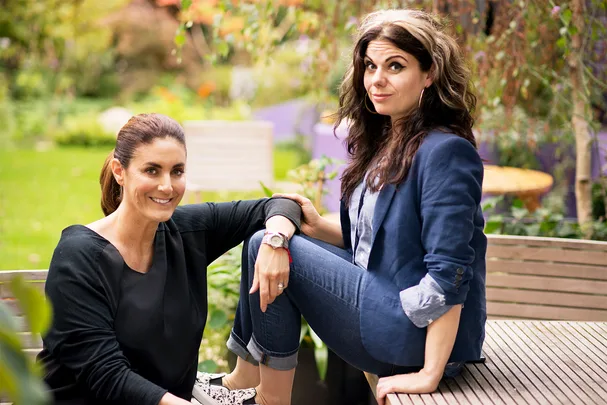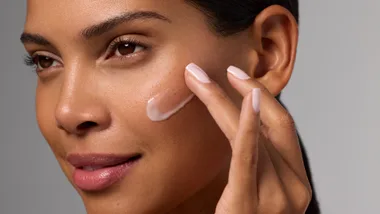An unlikely literary hero
Jackie Frank: You are best known for your ‘manual’ How to Be a Woman, which has sold one million copies in 38 countries. One review said the book basically argues for more joy, more female happiness, and encourages us not to beat up on ourselves. Explain.
Caitlin Moran: I just get this sense that men wake up in the morning and go, “My name is Dave. I’m putting on some trousers. I’ll get into my work clothes as comfortably and quickly as I can and then I’m going to go fishing or play football or just have some fun and sit in my shed.”
Men are just enjoying their lives brilliantly, as they should. Women wake up and they are immediately like, “Oh no, I shouldn’t have eaten carbs last night, I feel a bit bloated, I feel a bit too fat, my hair has gone triangular, I haven’t got anything in my wardrobe, I haven’t done my pelvic floor exercises, I haven’t booked my child’s birthday party.” We see ourselves as a list of problems and we are not concentrating on the main thing, which is joy. There will never be another you and there will never be another me and there will never be another moment like this – and that’s the thing we’ve got to remember.
JF: Your childhood was unconventional, to say the least. You stopped going to school at 11 because you came from a hippie family. Give us a potted version.
CM: We were educated at home by our parents. There were of eight of us in a three-bedroom council house and my parents were breeding Alsatian dogs at the time [for money]. So it was quite crowded and smelt of poo a lot. At one point there were 14 Alsatians and eight children in the house.
We were supposed to have lessons, but [instead] we sat around all day for four years watching classic musicals and eating lumps of cheese on a fork, which we called the cheese lollypop.
JF: Was it an advantage actually not to go to school?
CM: It worked very well for us because we became so panicked about our future, we all just educated ourselves. I went to the library every day.
JF: So fear drove it?
CM: Yes. That was why I started writing my first real novel when I was 13. It was, like: I’m screwed. My only future job prospects are either working on the cheese counter at the local supermarket or being a prostitute, and given that I share a bunk bed with my sister and she made it very clear that she would be very unhappy if I brought clients back, I’m going to have to find a third career, and that is writing.
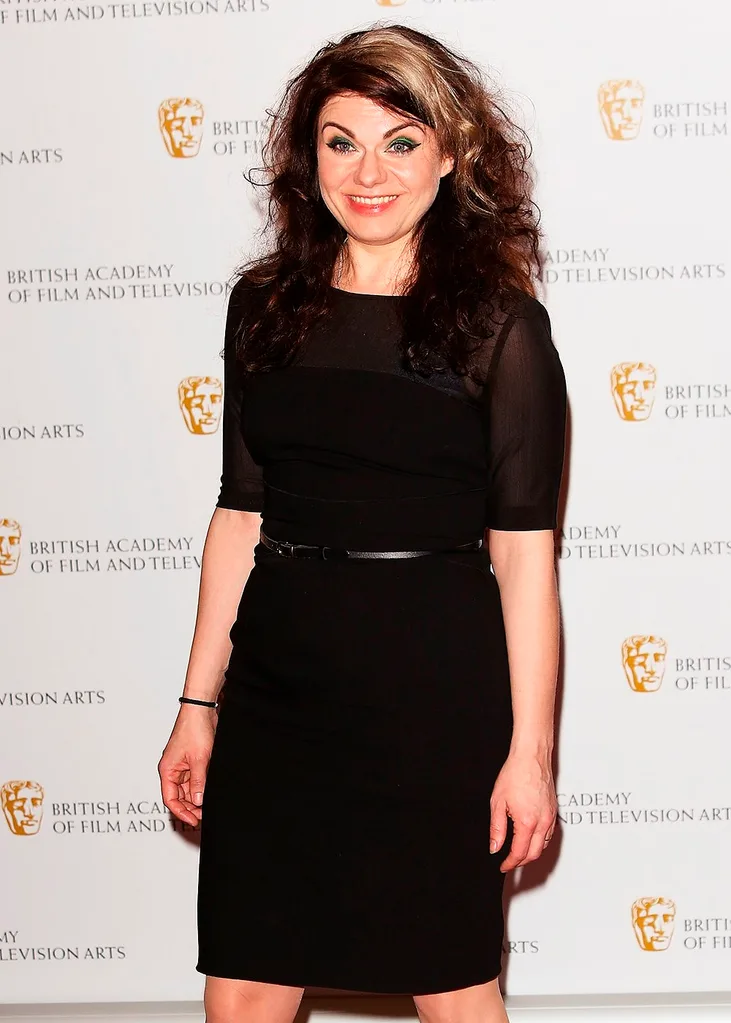
Talking confidence and role models
JF: You’ve written about being fat as a child and having no friends. Do you worry about weight now?
CM: It’s really interesting. I’ve found that the more powerful I’ve got, the less I care about how thin I am. I think a lot of it is not just down to gender; it’s a lack of power. Since I’ve become wealthier and more successful, I dress less femininely. Before, I’d go to a meeting with blow-dried hair and a really lovely dress and be quite meek and mild. As soon as I started earning money and having any power in the room, I just be in jeans and wearing the same anorak I wore at Glastonbury and was able to go, in a polite way, ‘No, I don’t think that’s going to work’. The things that are supposed to be masculine are actually the things to do with power.
JF: You had your first novel published at 15, yet you’ve talked about being under-confident. Were you really and how did you overcome it?
CM: Oh god yeah, totally. When I was 15, I had to go down to London to sell my novel and have a big meeting. Because we were very poor, I didn’t even own a coat. I was wearing a dressing gown and a pair of shoes I had bought from a jumble sale. I had my hands on the handle of the door to go into this meeting and I thought, “I don’t know what to say in there.” Then a tiny voice in my head went, “Pretend to be someone who does know what to say,” and that was it. I pretended to be Judy Garland in the musical where she just comes in and is charming to everybody. Fake it till you make it.
JF: Do women have to work harder at that then men do?
CM: We’ve got fewer role models. You see fewer confident women. In most films, still, you have a pretty girlfriend who comes in when all the guys are having fun. Or there’s the mum, or someone who gets killed in order to give the heroes something to avenge. The amount of times you see a woman competently and brilliantly doing something and talking about her life with her friends – and it not being to do with some guy – is still nuts. They recently tried to compile the 50 greatest lines in movies spoken by women that aren’t about guys and they could only get to 20. There is a brilliant saying by a feminist writer, “I cannot be what I cannot see.”
JF: We recently had our first female Prime Minister and I’m sure you saw what happened to her. After that, a lot of young girls said they just wouldn’t go into politics …
CM: But this is what happens on Twitter as well and why you cannot give in. The reason women get so much abuse on the internet is because men are being angry [towards us]. Anger is just fear brought to the boil.
If men are scared, getting angry and trying to drive you off, it’s because they know women are the coming force. They are trying to stop you. It is like a form of emotional terrorism. Trying to scare women off the internet. Out of the public domain. Out of politics. Out of the gaming world. Out of the media.
There does have to come a point where you have to go, “No, I’m not going to give up. I will not go. I will claim my half of the world.”
JF: And female success is still linked with looks – this idea that women are really only fit to be heard and seen if they look a certain way. Whereas with men, it doesn’t matter…
CM: …They can turn up looking like a wizard or a broken mattress.
JF: Yeah
CM: Again that’s down to power and that will change. For me, that’s so much the value of Lena Dunham. She just turns up on that red carpet, dressed like [she’s mental]. She’s got – I say all of these words lovingly – she’s got fat upper arms, she has a schlumpy posture, she is wearing things that most stylists wouldn’t or shouldn’t have put her in [but] I love that. She chooses stuff because it’s comfy and a lovely colour and she loves it. And when she opens her mouth and speaks, it’s double bubble. Whenever I do a photo shoot or TV, I always do my own make-up. I never have a stylist. There is a big value in seeing a woman who looks a bit rough. Every time I see like a shiny face or a bit of acne or smudgy eyeliner or a shirt that clearly wasn’t ironed or insect bites all over someone’s foot on television, I’m like, “Hooray!”
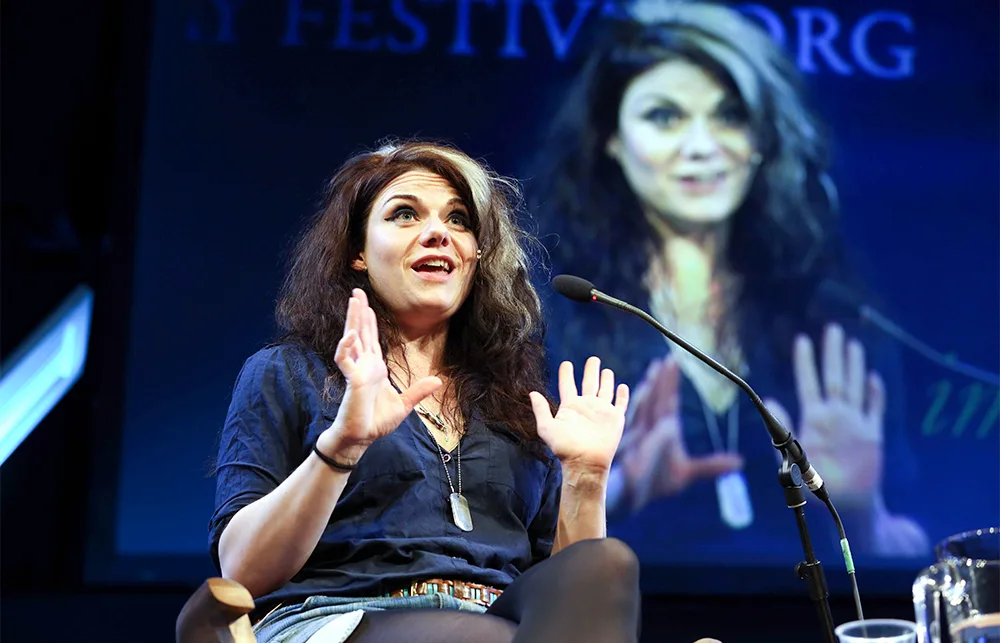
Behind the famous byline
JF: What have you learnt about marriage?
CM: Be polite. We are very, very polite to each other.
JF: Are you?
CM: I’ve been with my husband for 20 years and we’ve had about four arguments in that time. We are very scared of offending each other. We even say thank you after sex….
JF: Get out!
CM: We go, thank you very much, that was lovely…[We say it] in an amusing way, but at the same time, just thanks. Like, I still can’t believe it’s free!
JF: Not for everybody.
CM: I appear to be on some kind of discount. Don’t alert him to the fact that there are other wives who are paying for it.
JF: We have to talk about your pubic hair.
CM: Oh god, absolutely. Yes.
JF: There’s a whole section on it in How to Be a Woman and I love the line you wrote: “Lying on a hammock gently finger-combing your Wookie whilst staring up to the sky is one of the great pleasures of adulthood.” What’s your view on the Brazilian obsession?
CM: Anyone wants to do it, do it. For some women, that is what will suit you the most and that’s how you feel happiest…
JF: Looking like a child?
CM: If you want to, yeah. I’m not prescriptive about anything. I tried [a Brazilian] once. I found it impossibly itchy. It looked like a child’s vagina. I stopped. But, again, it’s down to you.
I felt awful that as a teenage girl, the first thing that happens when you transition from being a child into a woman, is you start growing pubic hair. In a world where you’re only seeing waxed vulvas and vaginas, you feel like you’ve got a problem. Something you’ve got to get rid of. If you go and talk to your beautician about what age they get girls asking to have Brazilian waxes, you will be horrified. That’s when you have to go, “Grown-up ladies, we owe the little girls some kind of solidarity here. Let’s not make them think they have a problem.”
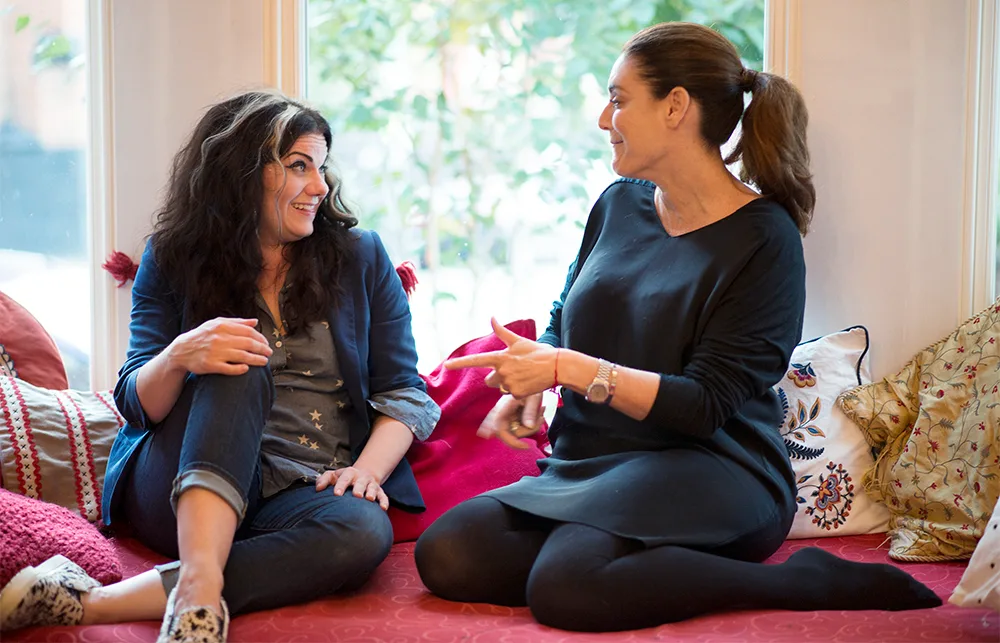
Upcoming projects (and the future of feminism)
JF: One of the books you have planned is going to be called How to Be Famous. I’ve heard you have some fantastic fame stories, including one about Lady Gaga …
CM: Yes, going to a sex club with Lady Gaga was pretty incredible. She said, “Other people buy diamonds with their money, I buy privacy,” and she proved it that night. She came off stage [and] there were seven or eight paps in cars waiting to chase her [so] she had five security guys block the road. We got into a black SUV, shot off down the road and no one followed us. We went to a sex club where she DJ’d and got off her face and walked around with no clothes on [but] no one took any photographs of her because she had security there. She went around and talked to everybody and went, “Please don’t take any pictures of me,” then bought everyone a drink. Not one picture came out from that night and that was at the height of her fame.
JF: Finally, what do you say about women like Arianna Huffington or Sheryl Sandberg, who have been criticised for talking about feminism from a position of wealth and privilege?
CM: Feminism works like a patchwork quilt. We all do our little square and we stitch it together. If you are waiting for one super, model feminist to come along, if she fucks up once, then everyone will go, “Oh, that’s feminism over and done with for another decade.” But if we are all doing it together, we can never break it. Feminism is as strong as whoever is taking part in it, which is why I invite you come and be a feminist now. Come and make it stronger. Come and take part in the quilt. We’ve got booze. You can wear whatever shoes you like. It’s going to be a riot!
RELATED: Frankly Speaking With Cindy Gallop
